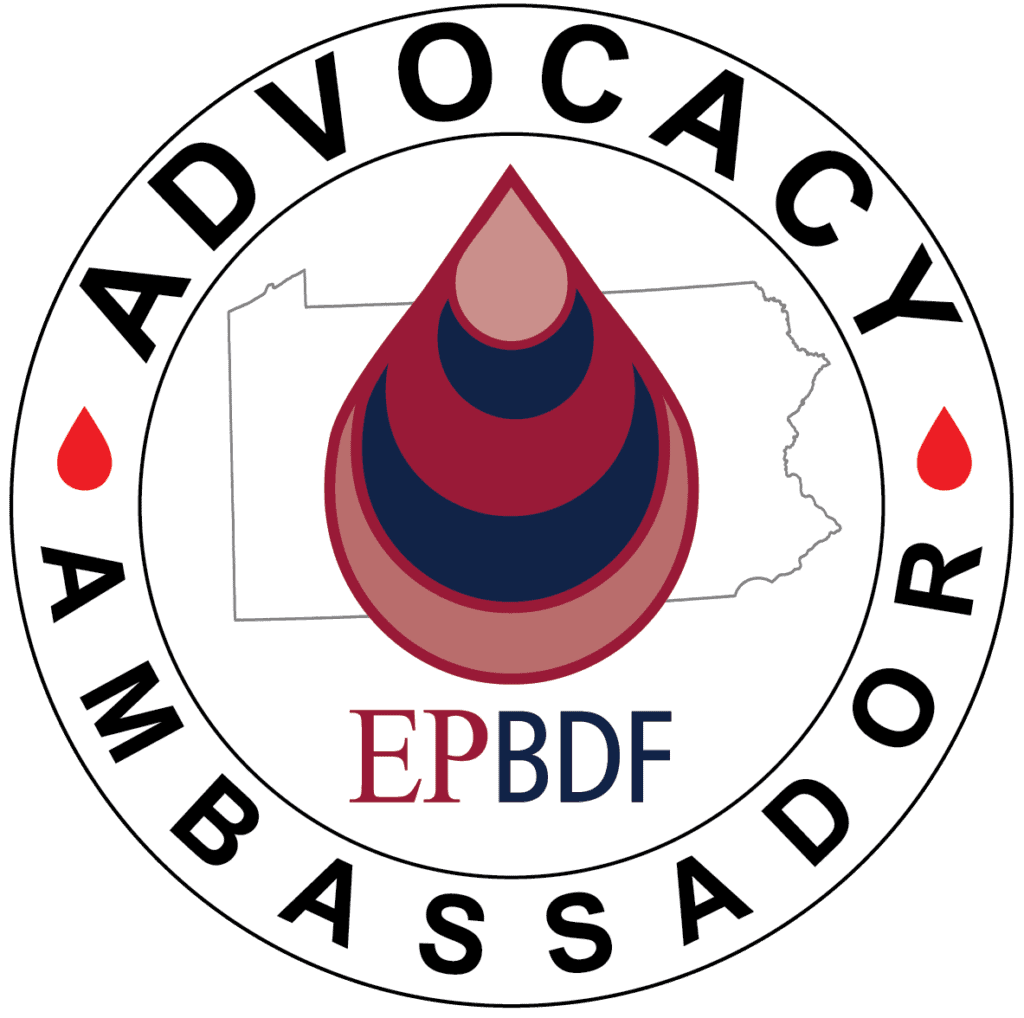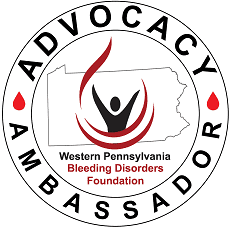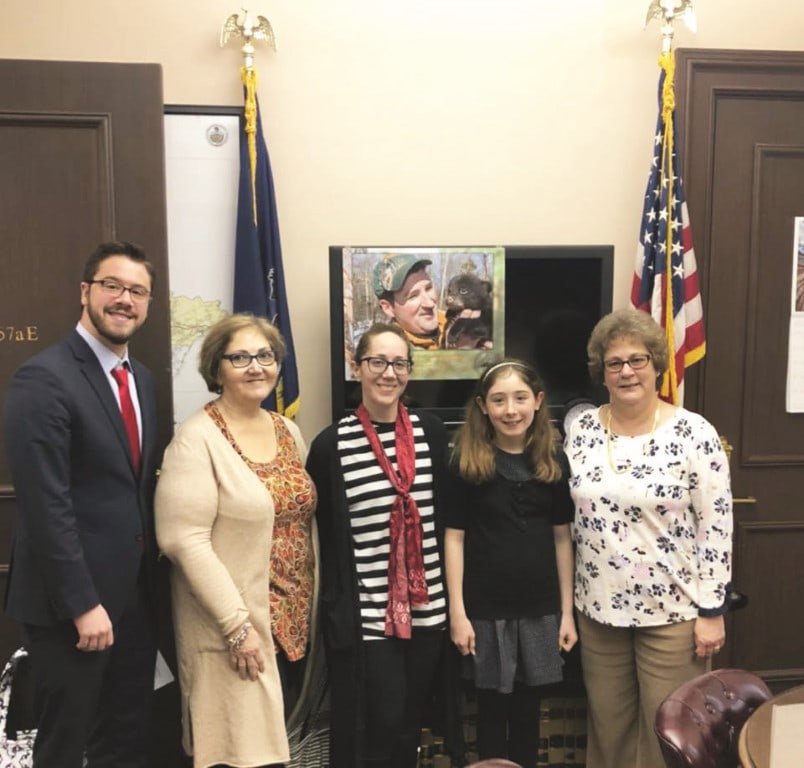

On July 11th, the 2024-25 budget package was passed by the House and Senate. Shortly after, the Governor signed the package into law. The General Appropriations bill (SB 1001) fully funds the hemophilia line item under the Department of Health at $1,017,000. It was also separated out from the other rare disease line items. In addition, our requested fiscal code language was also included under the Department of Health section in HB 2310. This ensures the funds will be distribution to all 7 HTCs in PA in the same way it has in previous years!
Thank you to our many advocates who met with their local legislators to share their stories and explain how important the Hemophilia Treatment Centers are to their care. We couldn’t have done this without you!
HB 1993 was introduced by Representative Jessica Benham (D-Allegheny), which amends the Pharmacy Audit Integrity and Transparency Act, by prohibiting PBMs from:
Additionally, PBMs are required by this legislation to pass through to the health benefit plan no less than 95% of the prescription drug manufacturer rebate obtained by the PBM on behalf of the health insurer client.
Health insurers and their contracted PBMs are prohibited from:
A PBM will establish a reasonably adequate and accessible retail pharmacy network for convenient access to pharmacies within a reasonable distance. This network cannot be limited to affiliated pharmacies only and must meet or exceed the federal requirements to access covered drugs.
Each licensed PBM is required to submit an annual network adequacy report to the department beginning April 1, 2026.The department shall publish the report on its Internet website.
Each registered PBM will submit to the department an annual transparency report beginning July 1, 2026. This report will include the aggregate amount of all rebates received, the aggregate amount of administrative fees, the aggregate-retained rebates, and the highest, lowest, and mean aggregate retained rebate percentage. PBMs that control affiliated pharmacies must also provide a description of the difference between what the PBM reimburses, or charges affiliated and nonaffiliated pharmacies. The department will publish the transparency report on its website.
Finally, PSAOs must provide the following information to the department and each contracted pharmacy:
The bill passed in the House on June 28 and was amended in the Senate on July 9. On Wednesday, July 10, the PA Senate passed the amended version of HB 1993 with a vote of 48-1. Yesterday, the House concurred in the Senate amendments with a vote of 172-30. This bill is awaiting Govenor Shapiro’s signature.
Advocacy is a key component of the Foundation’s mission. Our overarching goal is to preserve access to care for our community members in Pennsylvania. As such, we are involved with budgetary, policy and legislative issues that arise in Harrisburg. We are strategically positioned to be proactive in our advocacy efforts, while also being nimble enough to react when needed.
Under the leadership of both the Eastern and Western PA Bleeding Disorders Foundations, a coalition was formed that includes the seven HTCs in the state, the National Hemophilia Foundation, the Hemophilia Federation of America, and Milliron & Goodman Government Relations. This collaborative group is proud to represent You!
We frequently have meetings with the Department of Health, The Department of Human Services, the Insurance Commissioner’s Office and the Governor’s Office. In addition, we have developed strong relationships with legislative offices in both the PA House and Senate. We also get proclamations and resolutions adopted to recognize Bleeding Disorders Awareness Month in March and World Hemophilia Day on April 17. Buildings and landmarks are lit in red such as the Capital Building in Harrisburg, and Boat House Row, FMC Tower and Cira Center in Philadelphia. This is extremely rewarding work that benefits the entire bleeding disorders community.
Contact EPBDF for more information at info@epbdf.org or 610-770-5215, or 610-883-3266.



